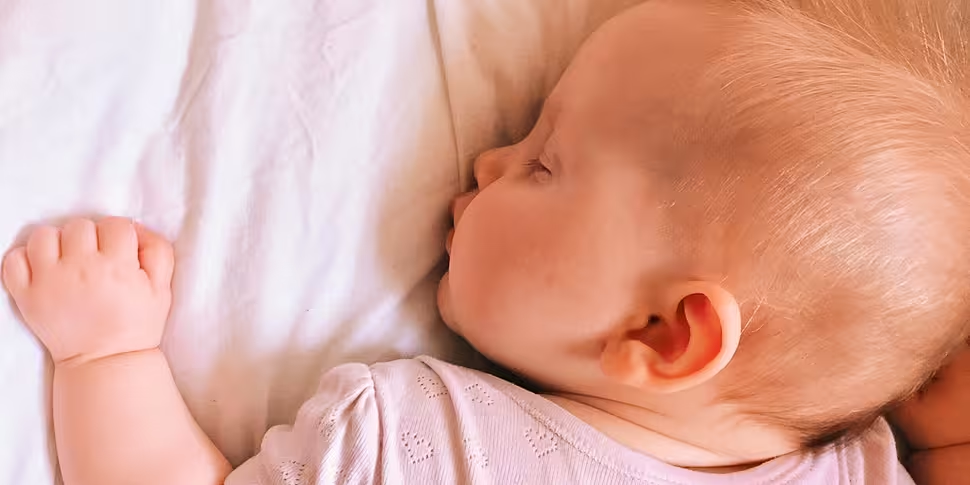A sleep consultant has said new parents should start a baby on a sleeping routine as early as possible.
Lucy Wolfe is author of the best-selling book, 'The Baby Sleep Solution'.
She told The Pat Kenny Show this can be done with minimum pressure for parents.
"It's a good idea to begin to sleep shape your child's sleep from as early on as feels right for you," she said.
"There are small things that parents can do without putting themselves under too much pressure.
"The early months are fuelled with pressure, and without worrying too much about sleep.
"It's a good time to get to know your baby, to learn a little bit about some of the small things around sleep that might help - such as learning to read the language of sleep.
"Just understanding the difference between getting tired versus over-tired, which often is represented by eye-rubbing [and] big-time yawning.
"Learning and helping your baby feel safe, loved, secure and then slowly introducing the idea of a bedtime routine... without putting themselves under too much pressure."
'Circadian rhythm'
Lucy said babies need help to regulate their internal clock.
"In the beginning, baby - although they're born with a circadian rhythm - it's not mature," she said.
"They're not making the sleep hormone melatonin until they're a little bit older, maybe about eight weeks or so.
"One of our tasks is to maybe help them regulate their circadian rhythm.
"You'll have heard before about maybe having a regular wake time after the first couple of weeks.
"Just exposing baby to bright and natural light, so that they avoid confusing day with night.
"I would really encourage that from early on, because then you can start to create a level of predictability."
'Late sleep cues'
Lucy said reading cues is important.
"Sometimes the sleep piece gets a little bit lost, because we're so bogged down in the feeding piece," she said.
"The need for sleep sometimes can get a little bit lost in translation because we wait for the late cues there.
"What sometimes parents are doing [is] they're waiting for the squawk for the sleeping.
"Baby is showing us intense sleep symptoms like eye-rubbing, big yawning, agitation.
"[This] often means the body now is being flooded with the stress hormone cortisol and adrenaline, which leads to a resistance to sleep.
"Early responding to both feeding and early response to sleep... can really help in that time that is often fraught with a lot of pressure in the first place anyway".
Key aspects
She said there are a number of key aspects parents should be aware of.
"The important characteristics for the bedtime routine are that we try to do it before baby is over-tired," she said.
"Then I like the idea that the bedtime routine itself happens in the bedroom that your child is going to sleep in.
"They can develop that association with the steps that they're leading to sleep time, but they all happen in the bedroom.
"Maybe you go in, dim the lights, close the curtains, change their nappy, into their little pajamas - and then there's a gorgeous opportunity as part of a bedtime routine for connection.
"Lots of eye contact, lots of dialogue," she added.









